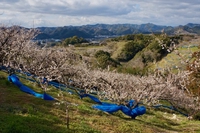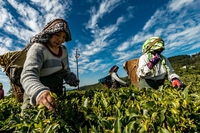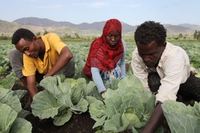
Ume, Japan’s favourite pickle, is the fruit of 400 years of sustainable farming
On the hills of Minabe and Tanabe ume fruit has been cultivated alongside oak forests and honeybees for centuries using a method now recognised by the FAO.
On the hills of Minabe and Tanabe ume fruit has been cultivated alongside oak forests and honeybees for centuries using a method now recognised by the FAO.
The world’s forests are precious and delicate ecosystems that give humanity so much. We should work together to protect and treasure our forests.
Forests are home to 80 per cent of the world’s terrestrial biodiversity. This year’s International Day of Forests highlights the urgent changes needed to save them.
by Jeffrey Y. Campbell, Manager of the Forest and Farm Facility at FAO In the Ecuadorian Amazon, Kichwa farmers grow dozens of products on tiny parcels of land. Their lands hum with biodiversity, yielding nutritious foods that have sustained families for generations. Wandering among fruit and nut trees and crops, these indigenous agroforesters fill their baskets
Protecting the traditional knowledge and territories of indigenous peoples means helping achieve a sustainable, hunger-free world and contributing to the fight against deforestation and climate change.
Mountains tower over us, yet they’re often overlooked in the field of education. Learning to better manage mountain resources is essential to achieve sustainable development and improve people’s lives.
The Indian state of Sikkim is the first to be certified as fully organic, and is now ready to export its model to the rest of the world. Its delegation told us how all this has been possible.
At what point are we in reaching the #ZeroHunger objective by 2030? The FAO photographs the current situation on World Food Day 2018 in this year’s State of Food and Agriculture report.
Mountain areas are home to around 1 billion people and provide goods and services. This is why the protection of healthy mountain ecosystems has become a must. The op-ed by FAO’s Mountain Partnership Secretariat.
A transition towards agroecology is needed to beat the diktats of a production model that is poisoning our Planet and our lives. The op-ed by Navdanya International.








